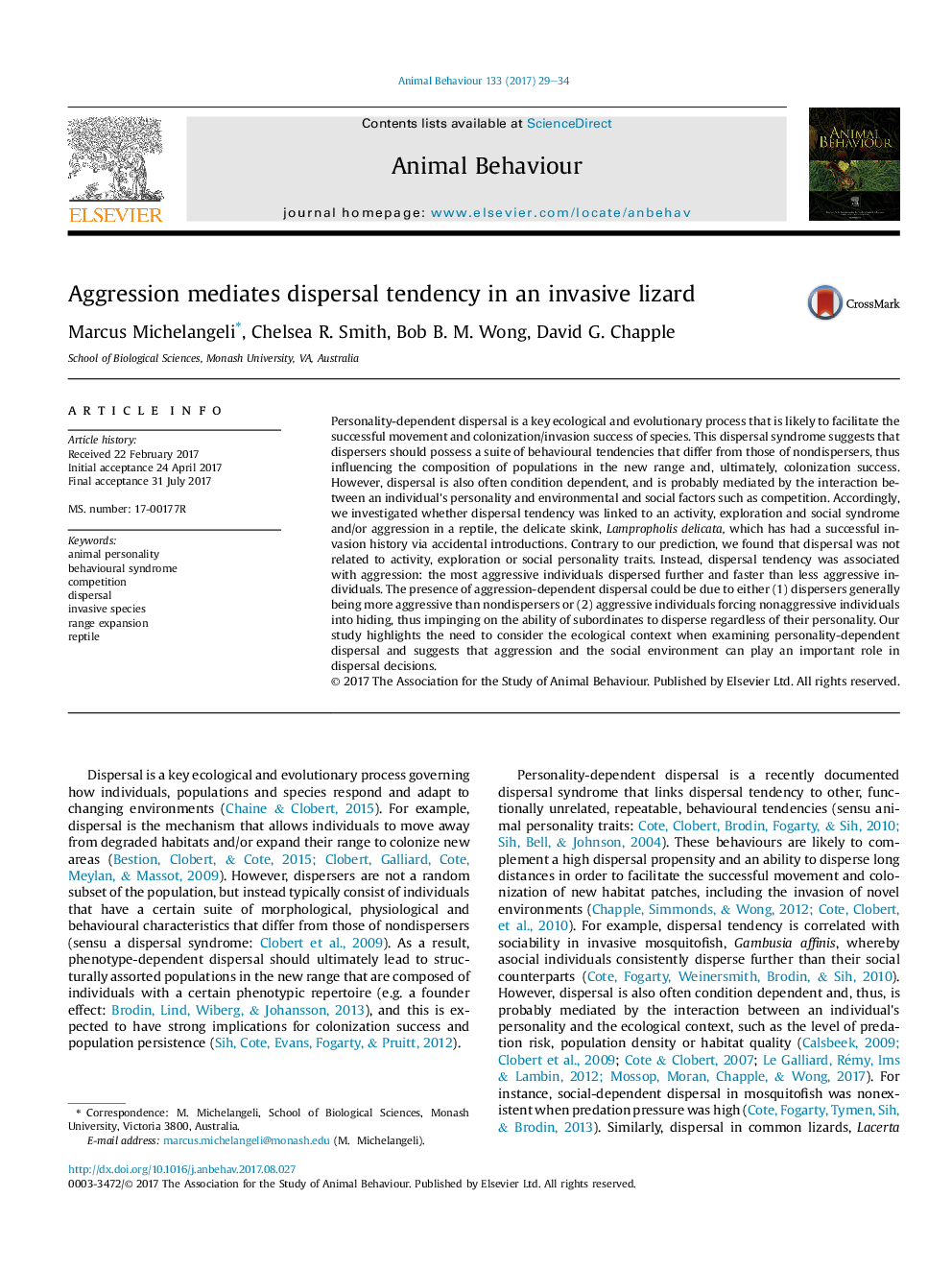ترجمه فارسی عنوان مقاله
پرخاشگری، تمایل پراکندگی را در یک مارمولک تهاجمی متمایز می کند
عنوان انگلیسی
Aggression mediates dispersal tendency in an invasive lizard
| کد مقاله | سال انتشار | تعداد صفحات مقاله انگلیسی |
|---|---|---|
| 114352 | 2017 | 6 صفحه PDF |
منبع

Publisher : Elsevier - Science Direct (الزویر - ساینس دایرکت)
Journal : Animal Behaviour, Volume 133, November 2017, Pages 29-34
ترجمه کلمات کلیدی
شخصیت حیوانی، سندرم رفتاری، رقابت، پراکندگی گونه های مهاجم، گسترش دامنه خزنده
کلمات کلیدی انگلیسی
animal personality; behavioural syndrome; competition; dispersal; invasive species; range expansion; reptile;

